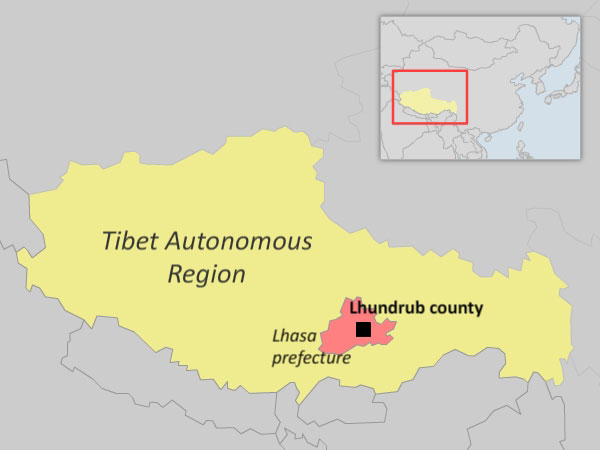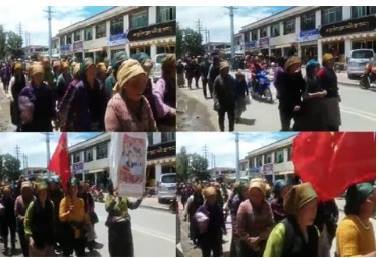More than 100 Tibetan women took to the streets carrying a huge Chinese flag and blown-up photos of the country’s leaders to protest against the confiscation of farmland on June 13 and 14, according to Radio Free Asia (RFA).
The women from Gachoe village in Tibet’s Autonomous Region, gathered to protest in front of the local county’s office. Tibetan farmers in the region have been driven to despair. The recent move by Chinese officials to take their land and use it for construction projects without paying the promised compensation has left many destitute.
Farmers were promised payment of 200,000 Yuan (USD 30,352) for every six acres of land taken, but were given only 20,000 (USD 3,035), RFA reports show. The protesters called out for the government to recognise its failure in giving them proper reimbursement and voiced their fears that the seizing and demolition of their ancestral land will leave them poverty stricken for generations to come.
“New cities are being built in the area, and the farmers are being tricked in various ways into giving up their land,” said one RFA source in the region. The same person also confirmed that the same thing is set to happen in many other counties this year.
 The all-women protest was used to evade violent crackdowns by Chinese police and the scheme has reportedly worked. For once, there were no reports of violence at the scene.
The all-women protest was used to evade violent crackdowns by Chinese police and the scheme has reportedly worked. For once, there were no reports of violence at the scene.
Tibetans carrying out protests are usually labeled “splittists” by the Chinese government and can face harsh punishment. Chinese flags and photos of Chinese leaders are used to highlight that, rather than campaigning for a free Tibet, they simply fight against unjust laws on environmental protection and the forceful eviction of farmers.
With China’s plan to rapidly build more cities and towns in Tibetan regions, these protests against land grab have become more frequent in recent years and are likely to become more so. In April this year, four Tibetan men from the Dzoege county of Ngaba Prefecture were arrested in connection with a campaign to reclaim the lands confiscated earlier by government. They were given varying terms of sentence.





 Print
Print Email
Email